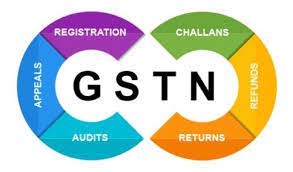GST registration is mandatorily required for most businesses and entities in India.
In the GST Model Law, the threshold limit for registration has been prescribed as Rs.20 lakhs of aggregate turnover with the exception of North Eastern and hill States, wherein the aggregate turnover limit has been set at Rs.10 lakhs. Further, the GST Model Law has defined certain classes of persons to require mandatory GST registration, irrespective of aggregate turnover threshold limit. Some types of entities required to obtain mandatory GST registration are persons making inter-state supply of goods and services, non-resident taxable persons, persons required to deduct tax at source, persons involved in electronic commerce, persons supplying goods and services through e-commerce operators, persons involved in providing online infrmation or database access or retrieval services, etc.,
What is aggregate turnover?
Aggregate turnover has been defined by the GST Model Law as the sum value of all taxable supplies of goods and services + value of exempt supplied of goods and service + value of all goods and services exported and value of inter-state supplies. While calculating aggregate turnover, the tax charged as CGST, IGST and SGST, non-taxable supplies, value of supply on which tax is payable on reverse charge basis and value of inward supplies need not be included.
New GST Registration
Entities that are yet to be registered under Central Excise or Service Tax or VAT can start applying for new GST registration once the roll out of GST commences.
Migration to GST Registration
Migration to GST and allotment of GSTIN has already started for existing indirect taxpayers like persons registered under Central Excise or Service Tax or VAT.
Reasons to Obtain GST Registration
For most entities, GST registration would be mandatorily required. Entities not mandatorily required to obtain GST registration can also obtain GST registration voluntarily. Having GST registration has the benefits of allowing the entity to becoming a legally recognized supplier of goods and/or services, allows the entity to collect GST from customer, permits the entity to pass on GST input credit to customers and makes entity eligible to claim GST input tax credit on taxes paid and adjust against GST liability.
Applying for GST Registration
Persons and entities required to obtain GST registration or become liable for registration under the Act are required to apply for GST registration within 30 days of becoming liable. Non-resident taxable persons and casual taxable persons under GST are required to apply for registration at least 5 days prior to commencing business activities.
GST Registration Requirement
To obtain GST registration and GSTIN, the application must mandatorily have PAN as GST is PAN based. Further, the applicant is required to furnish a mobile number, email address, partnership deed or incorporation certificate or registration certificate, address proof, details of bank account, photos of the promoters and other business documents.
Decoding GSTIN
All entities registered under GST are allotted a unique Goods and Services Taxpayer Identification Number or GSTIN. GSTIN contains the state code based on the Indian Census, PAN of the entity, number of GST registrations within a state, a blank digit for future use and a check digit.
